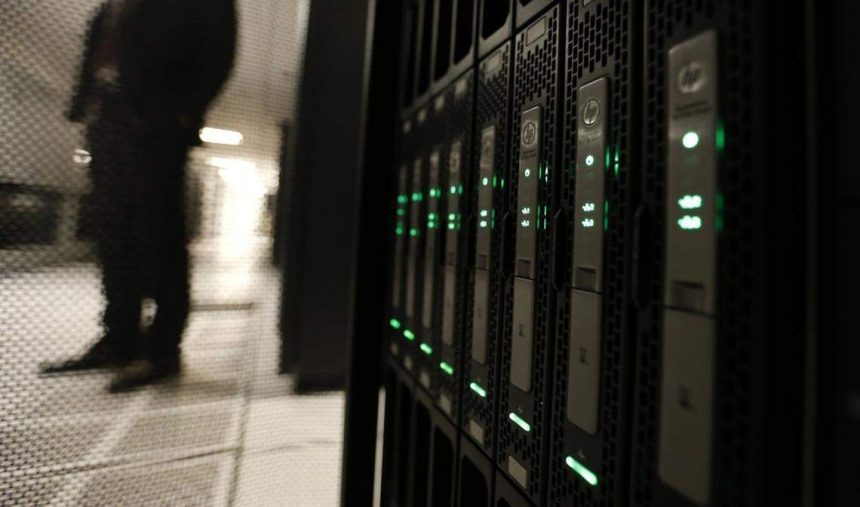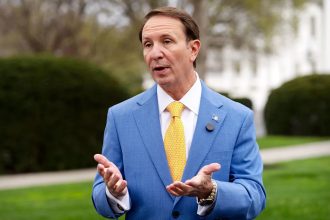The data-center economy is booming in California, and Gov. Gavin Newsom doesn’t want to slow it down.
The governor vetoed a bill on Saturday that would have provided more transparency around the water usage of data centers, which regularly require millions of gallons of fresh water to cool their computers.
“While I appreciate the author’s intent,” Newsom wrote in his veto message, “I am reluctant to impose rigid reporting requirements about operational details on this sector without understanding the full impact on businesses and the consumers of their technology”
The bill, AB 93, would have required data centers applying for business licenses to disclose to their water supplier how much water they expected to use. For existing data centers, it would have required a disclosure of annual water use to renew a business license.
According to the nonprofit Environmental and Energy Study Institute, data-center water usage can vary from 110 million gallons per year for a midsize center to 1.8 billion gallons annually for a large data center.
“As California′s needs for data processing grows, a better understanding of the ratepayer impacts and environmental tradeoffs must be understood,” argued the bill’s author, Diane Papan, D-San Mateo.
AB 93 was one of four bills meant to regulate data centers and their enormous usage of resources. Two others that didn’t make it out of the legislature would have required data centers to publicize their energy consumption and would have given a tax exemption to centers that used renewable energy.
The fourth, Senate Bill 57, was signed by the governor on Saturday in a watered-down form. It was originally intended to protect electricity ratepayers from having to shoulder the costs of data centers in their communities, but now simply authorizes the Public Utilities Commission to study whether the cost-shift is happening.
The discussion comes amid a huge surge in spending on data-center infrastructure. In August, chip maker Nvidia estimated AI infrastructure spending in 2025 alone would total $600 billion — and that it would be between $3 and $4 trillion by 2030.
Newsom has shown ready willingness to work with artificial-intelligence companies, even as he bucked some in the industry when he signed a major AI safety bill earlier this summer.
“The widespread adoption of artificial intelligence technologies is driving an unprecedented demand for data center capacity throughout the nation,” Newsom said in his veto message for AB 93.
“As the global epicenter of the technology sector, California is well positioned to support the development of this critically important digital infrastructure in the state.”









